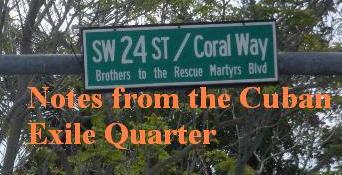Yesterday was World Press Freedom Day and Raul Castro remains designated as one of the predators of press freedom, by Reporters Without Borders but a closer look is needed. Raul Castro criticized the lack of quality journalism in Cuba in his Report To The 6th Congress of the Communist Party of Cuba, April 6, 2011 and issued the following call for:
"The Cuban media in its various formats should play a decisive role in the pursuit of this goal with clarifications and objective, continuous and critical reports on the progress of the updating of the Economic Model ...Written materials and television and radio programs should be produced that catch the attention of the audience with their content and style while encouraging public debate."Most Cubans, journalists among them, are completely jaded and cynical about such calls by the dictatorship for reform and wisely so based on the past 54 years of Cuban history. Sadly, on occasion someone actually believes what the Cuban government is peddling and goes out on a limb.
The latest victim is José Antonio Torres, a writer for the official publication Granma, who foolishly bought into Raul Castro's previous calls for quality journalism and wrote stories "about the mismanagement of an aqueduct project in Santiago de Cuba and the installation of fiber-optic cable between Venezuela and Cuba. Torres’s 5,000-word article on the mismanagement of the aqueduct project, published in July 2010, was reportedly praised by President Raúl Castro, who wrote in Granma that 'this is the spirit that should characterize the (Communist) Party press: transparent, critical, and self-critical,'" reported Pen America and went on to describe the price paid by Antonio Torres for his professionalism:
"Three months later Torres was arrested, and in mid-June 2012, following a closed trial, he was convicted of espionage and sentenced to 14 years in prison and the withdrawal of his university degree in journalism."Learning about the circumstances surrounding this case brought back memories of Sacha Baron Cohen's movie, The Dictator and the scene were the nuclear scientist is speaking candidly to the dictator about rocket design and they tyrant responds "lets agree to disagree" then signals to his security apparatus to have him killed.
If it weren't so tragic it would be funny.






No comments:
Post a Comment